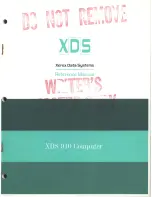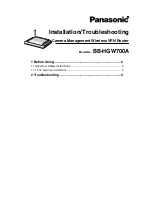
batteries, including but not limited to batteries of other brands or batteries of
different rated capacities.
●
Damage is caused to batteries because the battery operating environment or
external power parameters do not meet environment requirements. The
actual operating temperature of batteries is too high or too low, or the power
grid is unstable and experiences outages frequently.
●
Batteries are frequently overdischarged due to improper maintenance,
capacity is incorrectly expanded, or the batteries have not been fully charged
for a long time.
●
Batteries are not maintained based on the operation guide, such as failure to
check battery terminals regularly.
●
Batteries are stolen.
●
The warranty period of batteries has expired.
Basic Requirements
D ANGER
● Do not expose batteries at high temperatures or around heat-generating
sources, such as sunlight, fire sources, transformers, and heaters. The battery
may cause a fire if overheated.
● To avoid leakage, overheating, or fire, do not disassemble, alter, or damage
batteries. For example, do not insert foreign objects into batteries or place
batteries in water or other liquids.
● The fire hazard of the lithium-ion/sodium-ion battery energy storage system is
high. Consider the following safety risks before handling batteries:
●
Battery electrolyte is combustible, toxic, and volatile.
●
Battery thermal runaway can generate flammable gas and harmful gas
such as CO and HF.
●
The concentration of flammable gas generated from battery thermal
runaway may cause deflagration and explosion.
●
The batteries must be stored separately inside the packaging. Do not store
batteries together with other materials or in the open air. Do not stack
batteries too high.
●
Do not use batteries beyond the warranty period.
●
Do not remove the battery packaging before use. Batteries should be charged
during storage by professionals as required. Put batteries back to their
packaging after charge during storage.
●
Move batteries in the correct direction. Do not place a battery upside down or
tilt it.
●
Protect batteries from impact.
●
Do not perform welding or grinding work around batteries to prevent fire
caused by electric sparks or arcs.
●
Use batteries within the temperature range specified in this manual.
●
Do not use damaged batteries (such as damage caused when a battery is
dropped, bumped, or dented on the enclosure). Damaged batteries may
LUNA2000-(5-30)-NHS0
User Manual
1 Safety Precautions
Issue 06 (2022-03-01)
Copyright © Huawei Technologies Co., Ltd.
6













































